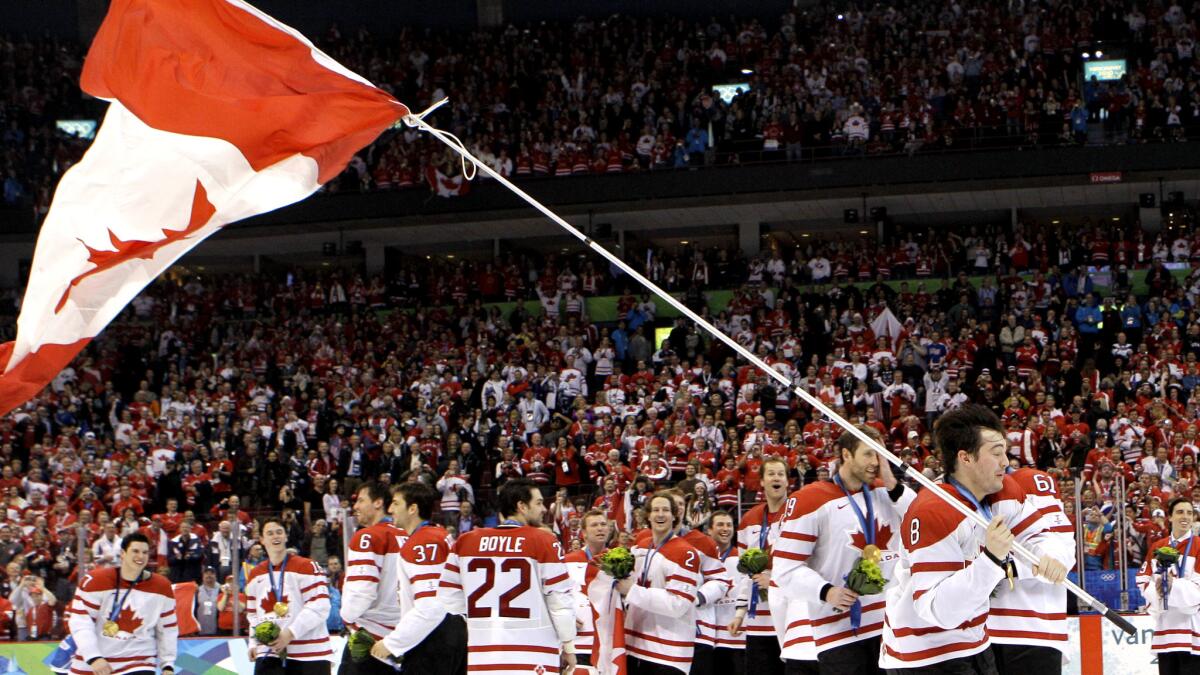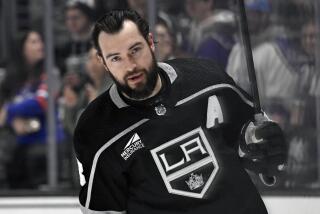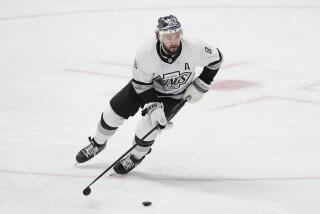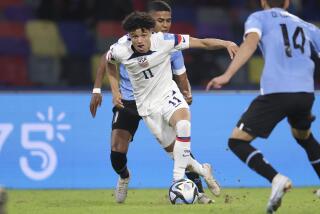For NHL stars, changes to Winter Olympic Games hitting home

The sight of then-20-year-old Drew Doughty waving the Canadian flag was one of the more endearing images of the 2010 Winter Olympics in Vancouver.
Canada just beat the U.S. in the gold-medal game, under immense pressure to win on its home soil, and Doughty, the Kings defenseman, was the face of a memorable tournament that showcased NHL players.
That won’t happen in the 2018 Winter Games because NHL players won’t participate. And the tournament took another hit this week when the International Olympic Committee banned Russia from competing in Pyeongchang, South Korea, because of evidence of doping and cheating.
Clean Russian athletes can participate under a neutral flag.
But there is a possibility that Russia’s high-regarded Kontinental Hockey League would refuse to allow players to participate in the Games, and that could represent a further drop in interest after the popularity of the 2010 and 2014 Winter Games.
“It’s kind of sad, too, because the two Olympics I was a part of — the gold medal hockey game was the closing part of the Olympics,” Doughty said before the Kings took a seven-game winning streak into Saturday’s game against the Carolina Hurricanes.
“It was the very last event. It was huge, especially in Vancouver and Russia. It was absolutely massive. That’s all everyone was talking about. Now that they’re not seeing the best players in the world, it’s definitely going to diminish the hockey in the Olympics, for sure.”
The Kings could have sent Doughty, Anze Kopitar, Jonathan Quick, Dustin Brown, Marian Gaborik, Jussi Jokinen and possibly Adrian Kempe to represent their countries. The U.S. team might have had Quick and the Ducks’ John Gibson as its goalies.
Instead, the tournament will be a mix of minor league players, college players and lower-level pros from Europe and North America. Brown said he thinks the parity could actually make it more interesting.
“I think as a player, you want to be a part of it,” Brown said. “But it’s probably pretty exciting knowing that it’s not going to be … the usual suspects. You kind of throw all the professionals out. That probably levels the playing [field] a little bit.”
The U.S. has not won gold in men’s hockey since the “Miracle On Ice” team in 1980. It got within a goal in that 2010 overtime final but did not medal in 2006 or 2014. With more amateur players in the mix, Brown said he thinks it could benefit some countries.
“It would help the U.S., for sure,” Brown said. “It probably tips the favor for some of the Finns, Swedes — they don’t have superstars but they have a lot of good players who play in the local leagues.”
Jokinen earned a silver medal in 2006 and a bronze in 2014 for Finland. He said there are a lot of good players in Europe and he would expect Finland “to have a good team either way.”
He adds, “Everybody’s saying the same thing: It’s not the same without NHL players, and it’s a big disappointment for us players that we can’t play there.”
The flip side for NHL players is an uninterrupted season and not having to adjust to the travel. Doughty is open to the latter because the Kings already took a trip to China in September.
“[I] don’t have to fly over to Asia again for the second time in a year — that’s kind of key for me,” Doughty said. “But obviously we wanted to play. The Olympics is a good experience. Living in the village, meeting other athletes was a really, really cool experience.”
Twitter: @curtiszupke
More to Read
Go beyond the scoreboard
Get the latest on L.A.'s teams in the daily Sports Report newsletter.
You may occasionally receive promotional content from the Los Angeles Times.







